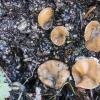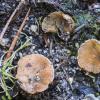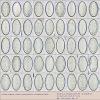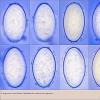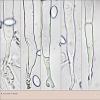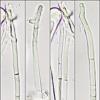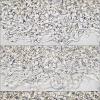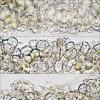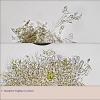
03-02-2026 20:44
Zetti MarioWhen I first saw this white mould on an Agaricus s

18-08-2025 15:07
 Lothar Krieglsteiner
Lothar Krieglsteiner
.. 20.7.25, in subarctic habital. The liverwort i

02-02-2026 21:46
Margot en Geert VullingsOn a barkless poplar branch, we found hairy discs

02-02-2026 14:55
 Andgelo Mombert
Andgelo Mombert
Bonjour,Sur thalle de Lobaria pulmonaria.Conidiome

02-02-2026 14:33
 Andgelo Mombert
Andgelo Mombert
Bonjour,Sur le thalle de Peltigera praetextata, ne

31-01-2026 10:22
 Michel Hairaud
Michel Hairaud
Bonjour, Cette hypocreale parasite en nombre les

02-02-2026 09:29
 Bernard CLESSE
Bernard CLESSE
Bonjour à toutes et tous,Pour cette récolte de 2

01-02-2026 19:29
 Nicolas Suberbielle
Nicolas Suberbielle
Bonjour, Marie-Rose D'Angelo (Société Mycologiq

31-01-2026 09:17
 Marc Detollenaere
Marc Detollenaere
Dear Forum,On decorticated wood of Castanea,I foun
 Hi evrybody,
Hi evrybody,Apothecia 7-15mm in diameter, on a small slope of a mountain stream to 1826 m. in altitude between roots of Juniperus communis and next to bryophytes. Stalk very short, almost hidden in the adhering earth. Smell unpleasant, sulfurous components.
Microscopy:
Spores oval, smooth, (15.8) 16.3 to 18 (18.5) x (9.2) 9.4 to 10.3 (10.8) µm, Q = (1.6) 1.64 to 1.8 (1.9), N = 62;I = 17.2 x 9.9 µm; Qe = 1.7, enveloped in a mucilaginous sheath (0.9) 0.95 to 1.5 (1.7) µm;Me = 1.2 µm.
Asci no amyloid, 266.8 to 295.9 x 13.2 to 15.2 µm; I = 282.6 x 14.4 m. Bifurcated or single base.
Paraphyses filiform, septate, slightly widened at apex, often with diverticulate growths.
Marginal hyphae septate, sinuous and rather variable morphology, apex widened, more or less diverticulate (3.8) 3.9 to 6.9 (7.7) µm thick.
Texture of two types: under hymenium, texture intricata from 160.9 to 181.7µm formed by hyphae (4.5) from 5.1 to 8 (9.4) ?m. Then, texture
globuloso-angularis 90.7 to 102.89 µm, with elements of (17.3) 19.2 to 27.7 (28.8) µm in diameter.
According to the work "GARNWEIDNER, E., T. R. LOHMEYER, H. MARXMÜLLER (1991) Vel-Geopysis foetida., G. Alpine v. Taxa nahestehende und Höhnel - mehr als Fragen Antworten", mucilaginous sheath of spores and stipe barely evident, appears to be an important element that distinguishes Geopysis alpina.
My spores measurements are somewhat larger than those defined in this work, but I do not know how important it can be.
I would like to seek your opinion on this collection.

I have write Geopysis instead of Geopyxis!!

Hi Fermin.
This collection enters in the alpina/foetida complex. I sequenced collections with and without smell, and all are the same...
Nico

I'm afraid that.

